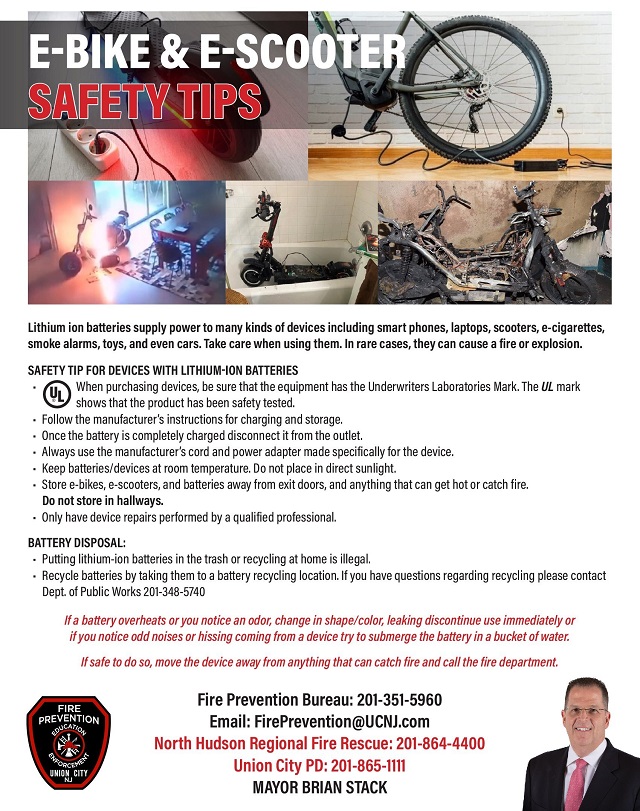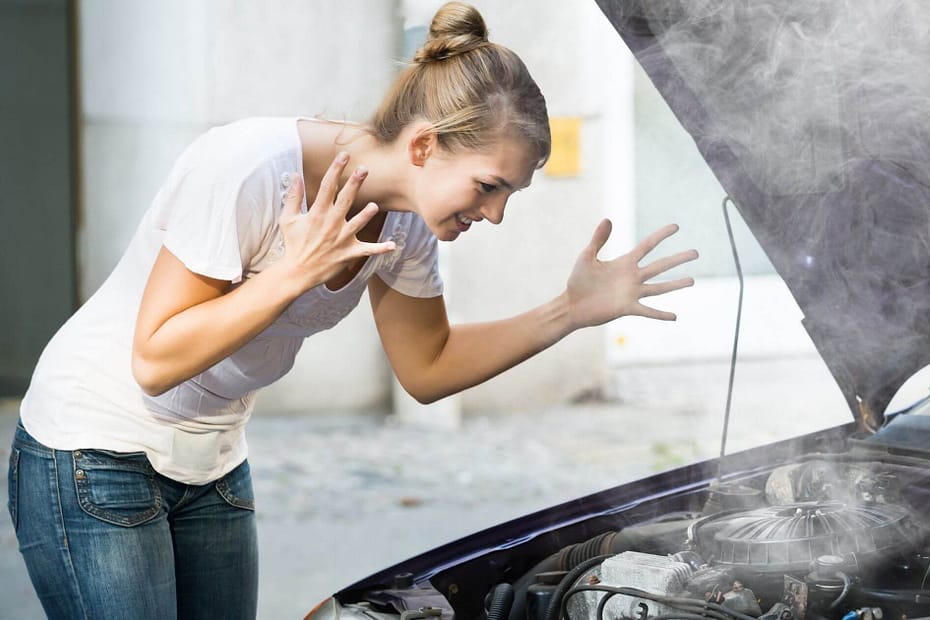A car overheats due to a malfunctioning cooling system or low coolant levels. An overheating car can be a frustrating and potentially dangerous situation.
When a car overheats, it means that the engine is running at a higher temperature than it should. This can be caused by a faulty cooling system, such as a malfunctioning radiator fan or a stuck thermostat. Another common cause is low coolant levels, which can result from a leak in the system or insufficient coolant in the reservoir.
When a car overheats, it is important to address the issue promptly to prevent further damage to the engine. We will explore the causes of car overheating and provide tips on how to prevent it from happening.

Credit: www.ucnj.com
Common Causes Of Car Overheating
Car overheating can be a major concern for drivers, as it can lead to engine damage and costly repairs. Understanding the common causes of car overheating can help you prevent this problem before it happens. In this post, we will explore three main factors that often contribute to overheating: low coolant level, faulty thermostat, and radiator issues.
Low Coolant Level
One of the primary causes of car overheating is a low coolant level. Coolant, also known as antifreeze, plays a crucial role in maintaining the optimal temperature of the engine by absorbing and dissipating heat. When the coolant level drops too low, there is not enough liquid to effectively cool down the engine, leading to overheating.
To prevent low coolant levels, it is essential to regularly check and maintain the coolant level in your car. This can be done by opening the hood and locating the coolant reservoir, which is usually transparent and labeled. Ensure that the coolant level is between the “minimum” and “maximum” marks indicated on the reservoir. If the level is low, use a mixture of equal parts coolant and water to top it up.
Faulty Thermostat
The thermostat is another common culprit behind car overheating. It is a valve located in the cooling system that regulates the flow of coolant through the engine. If the thermostat becomes stuck in the closed position, it restricts the coolant flow, causing excessive heat buildup and subsequent overheating.
Regular maintenance and inspection of the thermostat are crucial to prevent overheating. If you notice any signs of a faulty thermostat, such as fluctuating temperature gauge or coolant leaks, it is essential to have it promptly inspected and replaced by a qualified mechanic.
Radiator Issues
The radiator, a vital component of the cooling system, can also contribute to car overheating. Radiator issues such as blockages or leaks can impair the radiator’s ability to dissipate heat effectively, resulting in overheating. Blockages can occur due to debris, corrosion, or mineral deposits, obstructing the flow of coolant through the radiator.
If you suspect radiator issues as the cause of your car overheating, it is advisable to have it inspected by a professional mechanic. They can perform a thorough inspection to identify and address any blockages or leaks in the radiator, ensuring proper cooling function.
Signs Of An Overheating Car
An overheating car is a cause for concern and can lead to serious engine damage if not addressed promptly. Recognizing the signs of an overheating car can help you take immediate action to prevent further problems. Keep an eye out for these indicators:
Steam Coming From The Hood
If you notice steam billowing from the hood of your car, it is a clear sign that your engine is overheating. Steam is produced when the coolant inside the engine evaporates due to excessive heat. This should be taken as a warning sign to immediately pull over and allow the engine to cool down.
Temperature Gauge In The Red Zone
The temperature gauge on your car’s dashboard provides a visual indication of the engine’s temperature. If the needle on the gauge is approaching or already in the red zone, it means that your engine is running too hot and could be on the brink of overheating. When you see the temperature gauge rising, it is crucial to find a safe place to stop and let the engine cool down before continuing your journey.
Prevention Tips For Car Overheating
When it comes to preventing car overheating, taking proactive steps is essential for keeping your vehicle running smoothly. By understanding the common causes of overheating and implementing the right preventive measures, you can avoid the inconvenience and potential damage associated with this issue.
Regular Coolant Checks
Regular coolant checks are crucial for maintaining optimal engine temperature. Inspect the coolant level regularly and ensure there are no leaks in the system. A low level of coolant can lead to overheating, so top up the coolant as needed to keep the engine running within the appropriate temperature range.
Proper Maintenance Of Cooling System
Proper maintenance of the cooling system includes regular inspections of hoses, radiator, and water pump. These components should be kept in good condition to prevent overheating. Replace worn or damaged parts promptly to maintain the efficiency of the cooling system.

Credit: nj.pseg.com
Dealing With An Overheating Car
When your car starts to overheat, it can be a stressful situation. Here are some quick steps to help you deal with an overheating car.
Turn Off The A/c
If your car is overheating, the first step is to turn off the air conditioning. The A/C puts extra strain on the engine, increasing the likelihood of overheating.
Pull Over And Let The Engine Cool
When you notice your car overheating, find a safe place to pull over immediately. Allow the engine to cool down by turning off the ignition and opening the hood to let the heat escape.
Professional Inspection And Repair
When it comes to addressing an overheating car, professional inspection and repair play a critical role. Seeking mechanic’s advice and properly repairing cooling system components are essential steps in solving the issue.
Seeking Mechanic’s Advice
- Consult automotive mechanic for expert guidance.
- Diagnose root cause through thorough inspection.
- Follow recommendations for effective solutions.
Repairing Cooling System Components
- Inspect radiator, hoses, thermostat for damage.
- Address leaks in the cooling system promptly.
- Replace faulty parts to prevent overheating.

Credit: m.facebook.com
Frequently Asked Questions Of How Does A Car Overheat
What Causes Overheating In A Car?
Common causes of car overheating include low coolant levels, a faulty thermostat, a clogged radiator, or a malfunctioning water pump. These issues can disrupt the cooling system’s function, leading to overheating. Regular maintenance and prompt repairs can help prevent overheating in your car.
How Do You Fix A Car That Overheats?
To fix a car that overheats, start by turning off the engine and allowing it to cool down. Check the coolant levels and add more if needed. Inspect the radiator and hoses for any leaks or blockages. Make sure the radiator fan is working properly.
If the issue persists, consult a mechanic for further diagnosis and repairs.
How Do You Stop Your Car From Overheating?
To prevent your car from overheating, follow these steps: 1. Park in a shaded area or use a sunshade to reduce heat buildup. 2. Check coolant levels regularly and top up if necessary. 3. Make sure radiator fins are clean and not blocked by debris.
4. Maintain proper oil levels and change it as recommended. 5. Keep an eye on the temperature gauge and seek professional help if it begins to rise.
What Are Signs Of Overheating Car?
Signs of an overheating car include steam from the hood, a high temperature gauge, and a strong smell of coolant. You might also see coolant leaks and the AC not working. If you notice these signs, pull over safely, turn off the engine, and let it cool down before checking the coolant level.
Conclusion
Understanding the causes of car overheating is crucial for maintaining vehicle health. Regular maintenance and prompt attention to warning signs can prevent overheating. Keep an eye on coolant levels, check for leaks, and ensure proper air circulation. By taking these steps, you can avoid costly repairs and keep your car running smoothly.
